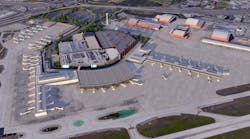A news report earlier this month mentioned how the union representing mechanics at one of the regional airlines in this country decided to suspend their involvement in the Aviation Safety Action Program or ASAP. You can read the news report on AMTOnline at http://www.amtonline.com/online/article.jsp?siteSection=1&id=11505
The FAA website describes ASAP like this:
The goal of the Aviation Safety Action Program (ASAP) is to enhance aviation safety through the prevention of accidents and incidents. Its focus is to encourage voluntary reporting of safety issues and events that come to the attention of employees of certain certificate holders.
To encourage an employee to voluntarily report safety issues even though they may involve an alleged violation of Title 14 of the Code of Federal Regulations (14 CFR), enforcement-related incentives have been designed into the program. An ASAP is based on a safety partnership that will include the Federal Aviation Administration (FAA) and the certificate holder, and may include any third party such as the employee's labor organization.
A further search of the FAA website indicates an ASAP can exist for several air carrier employee groups; Pilot, Maintenance and Engineering, Dispatch, Flight Attendants, and Others. As mentioned above, ASAP is a collaborative initiative between the FAA, the air carrier employee group and their union representatives if applicable, and the air carrier. A participation list also posted on the FAA website, dated July 19, 2010, includes more than 25 air carriers where technicians participate in an ASAP.
I have not spoken to this air carrier, the union representing the technicians, the technicians involved, or the FAA on what prompted the decision to suspend the program. ASAP as previously stated is designed to promote safety, to learn, and implement corrective actions where applicable. It’s unfortunate that circumstances must have come between the groups involved to prompt the decision to suspend this safety program.
Keep ‘em flying, Ron



